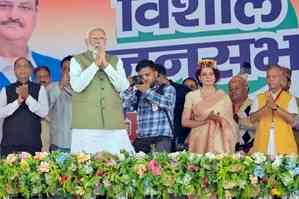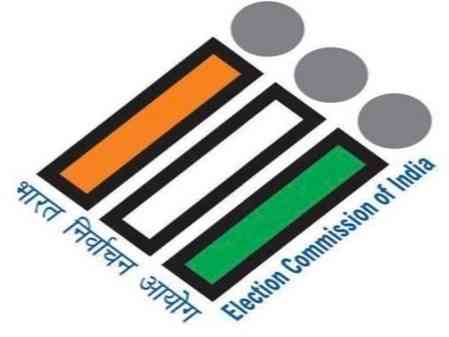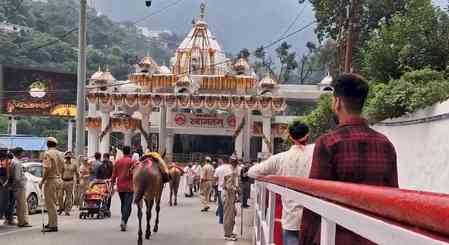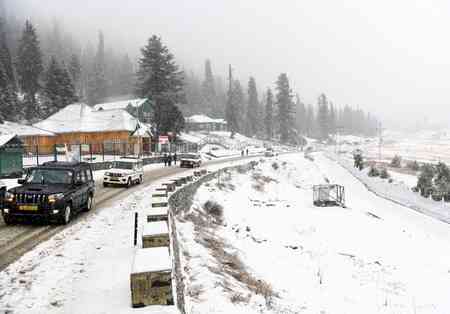Debate rages over PM Modi's claim: Congress ‘misused’ EC after Rajiv's assassination
Prime Minister Narendra Modi’s recent observations during an interview questioning the postponement of Lok Sabha elections following the assassination of former PM Rajiv Gandhi have ignited a vigorous debate over the Election Commission's “impartiality” during Congress rule in 1991.

New Delhi, May 24 (IANS) Prime Minister Narendra Modi’s recent observations during an interview questioning the postponement of Lok Sabha elections following the assassination of former PM Rajiv Gandhi have ignited a vigorous debate over the Election Commission's “impartiality” during Congress rule in 1991.
In the interview, PM Modi asserted that the Congress unnecessarily postponed nationwide elections following Rajiv Gandhi's assassination.
He also claimed that the party orchestrated a nationwide procession of Rajiv Gandhi's ashes to garner public sympathy for later use in the polls.
Critically, PM Modi pointed out the irony of the Congress accusing the present Election Commission of impartiality while engaging in such tactics themselves.
He also sought to suggest that the Congress, now raising ‘concerns’ about the ‘absence’ of level playing fields in the elections, showed little regard for fairness in the past.
Political observers referring to past incidents say that after Rajiv Gandhi's assassination, the grand old party allegedly manipulated the Election Commission to delay the polls, exploiting public sympathy for electoral gains.
After the Prime Minister's remarks, numerous posts surfaced on X, showcasing newspaper clippings from that time.
The clippings show how Congress urged the citizens to vote in its favour, further fuelling the ongoing discourse.
“EC rules mandate that if a candidate dies during polls, the election on that particular seat is countermanded and then held at a later date. There is NO rule to postpone the entire elections for just one seat. Yet, this was exactly what was done when Rajiv Gandhi was assassinated in May 1991. The entire election was postponed by three weeks,” a political commentator posted on X.
Referring to a newspaper clipping, the analyst mentioned that seven Chief Ministers at the time had opposed the postponement of the elections. However, despite their opposition, the then Chief Election Commissioner T.N. Seshan decided to postpone the elections.
The entire debate is raging in the backdrop of the Congress-led opposition raising concerns regarding the Election Commission's ‘delay’ in releasing data on the voting percentage.
PM Modi himself said during a rally on Thursday that sensing their defeat, the opposition parties have returned to blaming EVMs and raising questions about turnout figures.
A political analyst said, “As many as seven Chief Ministers bitterly opposed the postponement of the elections in 1991. Many called it a murder of democracy and the Constitution. Yet, then CEC T.N. Seshan, a known Congress dynasty loyalist, went ahead and postponed the elections in a completely arbitrary action.”
The user also highlighted that the three weeks provided by the Election Commission were effectively utilised by Congress to garner sympathy votes, especially considering the party's perceived trajectory towards a significant electoral setback.
He also claimed that during those three weeks, Congress capitalised on the opportunity to solicit sympathy votes.
“Before Rajiv Gandhi's assassination, the Congress was on track for a significant electoral setback. The party strategically used the postponement period to conduct processions, feature Sonia Gandhi and Priyanka Gandhi in advertisements, organise last rites Yatras, and deploy other tactics to evoke sympathy from the voters.
"Ultimately, the postponement completely transformed the dynamics of the elections,” he added.
Social media users also alleged that Seshan was later “heavily rewarded by Congress” which gave him a ticket to fight against BJP heavyweight L.K. Advani.
Another political analyst said that many other CECs were similarly 'corrupted' by Congress.
“The Congress ecosystem that every day creates a false narrative of a level-playing field against the current EC should rather look at their own shady and despicable past,” he argued.


 IANS
IANS 










